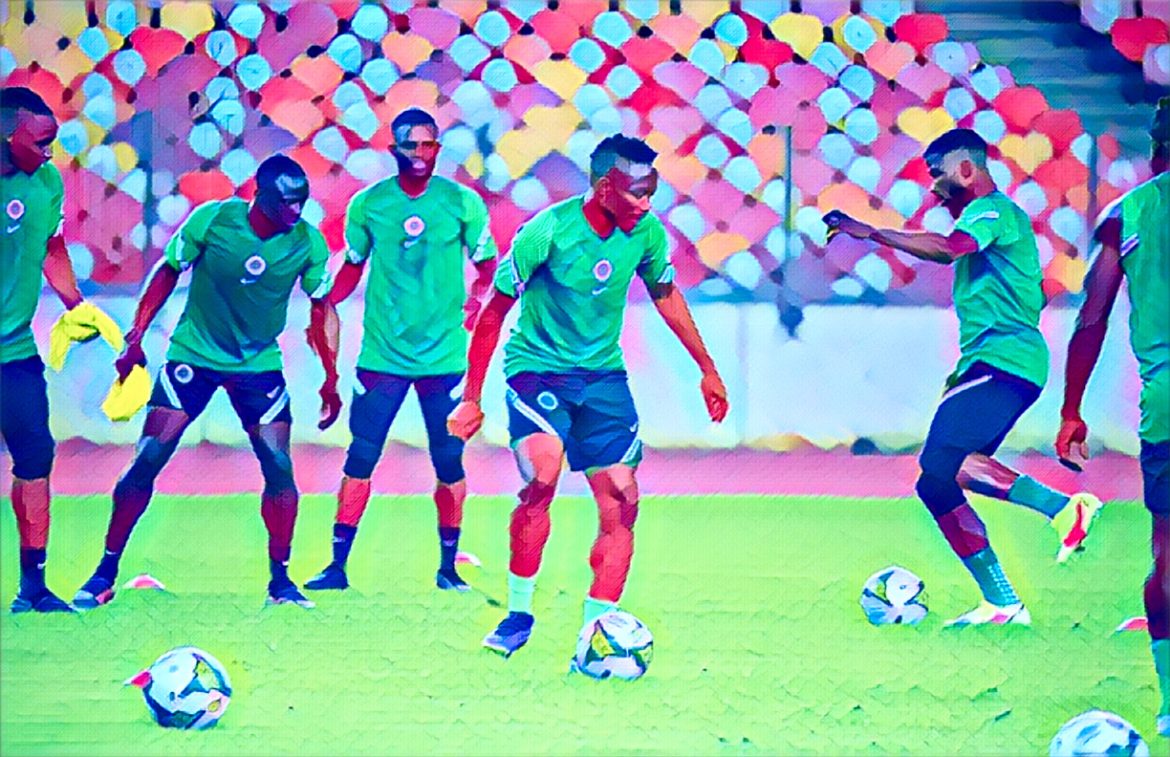KEY POINTS
- VR training is transforming how football players mentally prepare for matches.
- Wearable tech enhances player performance and helps prevent injuries.
- Data analytics is now an essential tool for tactics and player recruitment.
Football is more than just a game; it’s a global phenomenon that continues to evolve. In Nigeria, this beloved sport is being shaped by groundbreaking technologies that are improving how it’s played, coached, and officiated.
From cutting-edge data analytics to virtual reality training, these advancements are revolutionizing the way teams prepare for matches and how the game is experienced by millions of fans. Here are the top five technologies transforming Nigerian football.
Virtual Reality (VR) Training
Virtual reality has revolutionized training in football by simulating real-life match scenarios without players stepping onto the field. In Nigeria, VR technology is becoming increasingly popular, allowing players to enhance their tactical awareness and decision-making skills.
Injured players, in particular, can benefit from this technology as they continue to improve while recovering. VR training provides a mental edge, sharpening players’ ability to anticipate movements and understand in-game situations.
Clubs worldwide, including those in Europe, have already embraced VR technology to improve player performance. Nigerian teams are now tapping into this innovation to ensure that their players are more mentally prepared for high-stress situations. This form of training is proving to be indispensable for modern football in the country.
Advanced Data Analysis
Data analytics has brought about a tactical revolution in football. Nigerian football clubs, like many others around the world, are now using advanced analytics software to gain a competitive edge.
These programs analyze huge amounts of match data, enabling teams to optimize strategies, scout potential talent, and even prevent injuries by monitoring player workload.
With real-time data, coaches can make informed decisions on formations, tactics, and substitutions. By relying on data-driven insights, Nigerian clubs are leveling up their preparation for matches and ensuring that they make smart decisions both on and off the field.
Physical Activity Monitoring
Wearable technology has made it easier than ever to track players’ physical performance in real-time. Devices that measure heart rate, speed, distance, and acceleration are now being used by football teams in Nigeria.
These sensors allow coaches and trainers to monitor each player’s workload, preventing injuries and maximizing performance during training and games.
Physical activity monitoring ensures that players stay fit and that their progress is tracked over time, leading to better recovery strategies and customized fitness plans.
In a sport where fitness is everything, this technology is giving Nigerian football teams an upper hand in managing player health and performance.
Goal-Line Technology
Goal-line technology is one of the most important innovations in football, designed to ensure fair play by confirming whether the ball has completely crossed the goal line.
Using advanced sensors around the goal area, it alerts referees immediately, helping reduce controversies surrounding unclear goals. This has been widely accepted across major football leagues and has made a significant impact on the accuracy of officiating decisions.
In Nigeria, this technology has not been fully implemented due to logistical hurdles and financial constraints. However, there has been growing demand from fans, players, and officials for its inclusion in local competitions.
As accessibility to this technology improves, there is a strong chance that it will be adopted, enhancing the quality of officiating and reducing errors in critical moments of matches.
VAR (Video Assistant Referee) System
The Video Assistant Referee (VAR) system has sparked much debate since its introduction, but it has undeniably improved fairness in football matches. VAR allows referees to review key decisions, such as goals, penalties, and red card incidents, by using multiple camera angles and slow-motion replays.
Although not yet fully integrated into Nigerian football, it’s expected that the adoption of VAR will follow as the sport continues to grow in the country.
Despite some criticism of the system for causing delays, VAR has brought a new level of transparency to football. By reducing human errors, it ensures that crucial decisions are made accurately.
Nigerian football authorities are exploring ways to bring this technology into their domestic leagues to further professionalize the sport.
Innovations Driving Change in Nigerian Football
Technological innovations are rapidly transforming various aspects of football, and Nigeria is beginning to witness this shift. These technologies are not only improving training methods and player management but are also contributing to more accurate officiating. As these advancements become more integrated into Nigerian football, the sport’s overall quality is expected to improve.
These developments hold great potential to elevate Nigerian football to higher levels of competitiveness internationally, giving teams and players an edge in both performance and strategy. Embracing these tools will help foster growth and ensure Nigerian football remains progressive and adaptable to global changes.


